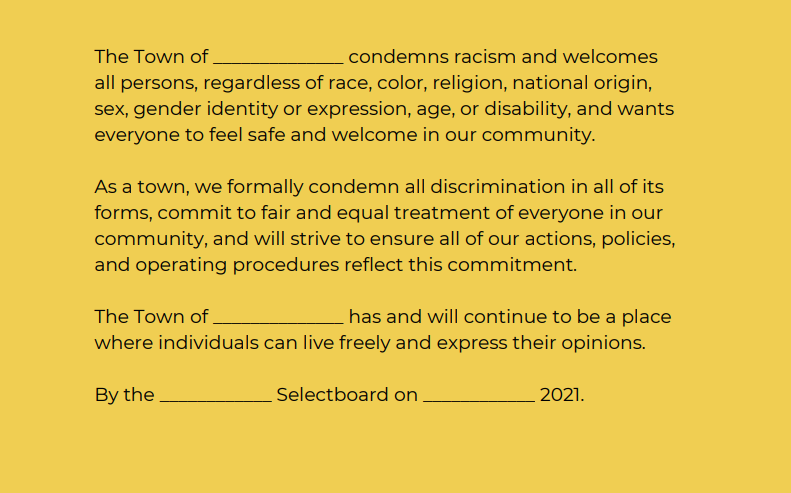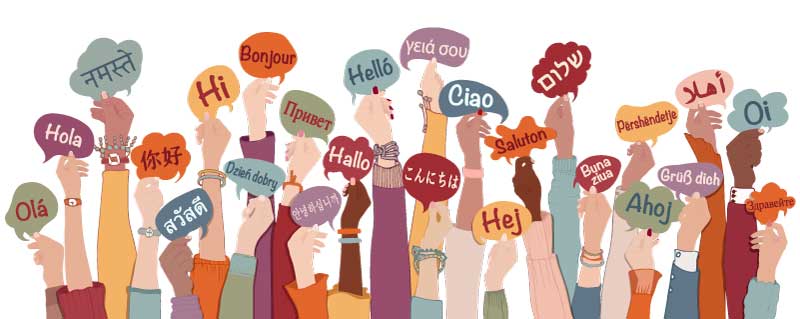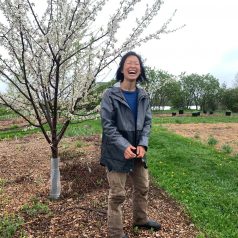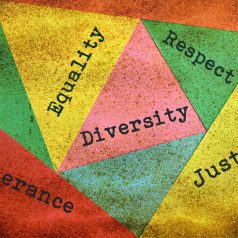
Honoring Vermont’s Inclusion Week and the Adoption of a Proclamation of Inclusion
Governor Scott has declared the second week of May (8th – 14th) to be Vermont’s Inclusion Week and has adopted a Proclamation of Inclusion, which makes clear that the State of Vermont condemns discrimination in all forms and welcomes all people who want to live, work and visit Vermont. Both proclamations acknowledge the work of many in state and local government and by community groups across the state while recognizing there is more work to do to consistently address racism and systemic inequities.
The intent of the Declaration of Inclusion is to indicate and reinforce the message to all visitors, residents, and those thinking about or planning to come and stay, that:
- Vermont is a welcoming community
- Vermont invites all to bring their families and friends, as well as their talents and skills
- Vermont is a community of people who will treat them fairly, provide encouragement and support for their interests
- Vermont will bring the full resources of the state, cities, and towns to ensure their well-being and security
“This is an important pair of proclamations because they recognize that being truly inclusive and welcoming takes work, and we have to keep building on it,” said Governor Scott in a press release. “The fact is, if we want stronger, more economically secure communities, we need more people and more diversity in Vermont. I hope this effort sends a message to anyone who wants to live and work in a safe, healthy, and welcoming state.”
The Proclamation of Inclusion reads:

The underlying principles of the Proclamation:
- Highlight the fact that we as Vermonters are not fully aware of the systemic racism that is present in our majority “white” society
- Raise consciousness about the importance of diversity, the positive effect that diversity can have on our economy, and on equity and justice
- Emphasize the importance of preparing our youth to live and prosper in the more diverse society in which we all will soon be living
- Tell the world at large that Vermont welcomes all people to our state, which is struggling to maintain its population and its ability to fund basic programs for its citizens
- Attract people with myriad skills and traditions to Vermont to live, work, and raise families in a state that values and encourages diversity in its population
- Focus attention on examining employee manuals, police protocols, and hiring practices to promote fairness and equity in applying legislation, ordinances, etc., within our towns and the state as a whole
- Employ best practices in coaching municipal and state employees, including police, to value and respect all citizens
The Goal:
- To have each Vermont municipality adopt and implement a Declaration of Inclusion.
Adopt means formal approval by the municipality’s governing body.
Implement means the enactment and furtherance of plans, policies, programs, procedures, and relevant training that support and advance the intent and spirit of the Declaration.
Evidence of Commitment:
Town Level
Inclusion in the town’s website, employee manuals, police protocols, newsletters, economic development marketing materials, etc.
State Level
Inclusion in major addresses by leading state officials, printed materials used to welcome visitors, policies and operating procedures, external communications, public relations pieces, etc.
Organizational Level
Inclusion in policies, operating procedures, and similar documents used by labor unions, law enforcement agencies, and academic institutions throughout the state.

These proclamations were developed under the framework of the Declaration of Inclusion, which was developed by a group of committed Vermonters and presented to municipalities throughout the state. To date, nine municipalities in Vermont, including Brandon, Franklin, Middlebury, Moretown, Pittsfield, Pittsford, Waterbury, Woodstock Village, and the City of Rutland, as well as the Vermont League of Cities and Towns, and several other organizations have adopted a form of the Declaration of Inclusion.
“These proclamations are part of the State’s broader efforts to make equity a foundational element of everything we do,” said Xusana Davis, the State’s executive director of racial equity. “They espouse our values, and our values underlie our policy, budgetary, and operational work. We look forward to making an impact with these declarations, and even more so, we look forward to living them out through our work across the state.”

According to the Vermont League of Cities and Towns, “A town or city adopting a Declaration of Inclusion is making a statement to its citizens and to others that this is a town that believes in treating everyone fairly, recognizing that “everyone” does not look or act alike, that we expect our municipal government to abolish any language in ordinances, hiring practices and police protocols that favor the white majority or diminish the rights of others. A town or city may not necessarily be reacting to a prior incident or situation but, in most cases, will just be doing what is right and fair for all citizens – present and future. A welcoming town thrives because it encourages diversity, which brings new vitality to the economy and increased tax revenue.
Has your town adopted a Declaration of Inclusion? What action are they taking to uphold their promises? Check out this handy guide generated by the Vermont League of Cities and Towns, which provides a tool kit to walk you through the steps of asking your town and/or organization to adopt the Declaration of Inclusion.







